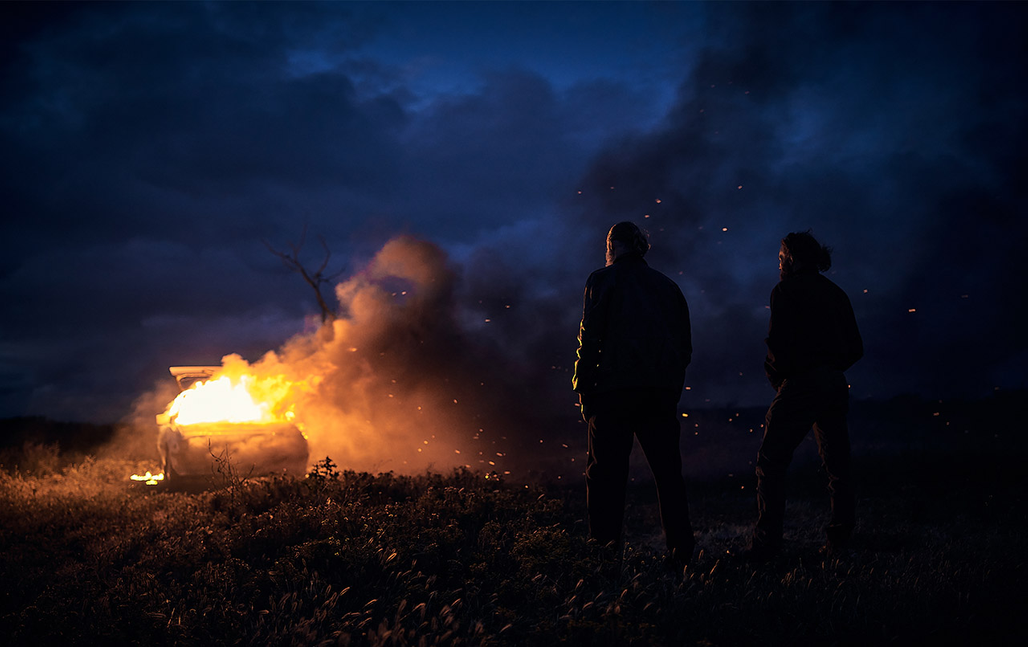
The Stranger as seen by Thomas M Wright

Twenty years of taking on a variety of roles forged the career of the Australian Thomas M Wright. His second feature film, The Stranger, tells of a powerful friendship between two men, Henry and Mark. Except that in reality, Mark (Joel Edgerton) is trying to have Henry (Sean Harris) convicted for an unsolved murder.
Please describe your working method.
The working method differs and depends on the material. The scenes involving my own son were unscripted – and filmed over several days with a reduced crew. The scenes were dependent on the relationship that he had built over a year with his on-screen father.
The largest part of the work is preparation. Aside from the research and writing of the film there was over a year of pre-production with the cinematographer, production designer and the lead actors. When it comes to the day of filming though, we have to be prepared to disown that work and fall.
Please share a few words about your actors.
All of the actors went deep with this film. It made for a confronting process. The material left a mark on all of us. I could not be more thankful for their commitment – and I could not be more proud of their work. They disappeared into the film. They are rare, raw presences – all of them. I hope that seeing the finished film has offered catharsis for them all.
What inspired you to become a filmmaker? What were the sources of your inspiration?
At fourteen I found the films of Stanley Kubrick and he became like a second father. He died when I was eighteen and it was like losing a family member. It was a personal relationship – and though I was just a stranger from another country I grieved his loss for a long time.
At that time I also discovered the early films of Jane Campion. I had never seen our part of the world through a lens like hers. It flowed and bloomed and jarred with life and potential. I became an actor at around that age. I found I had a capacity for it that I didn’t really understand – but it only required me, my mind, my body and voice – nothing else. The idea of writing or being a filmmaker was not a possibility. It was something I felt I had no permission for. I came to filmmaking late – and I am thankful that is the case. It wasn’t until I was working with Jane Campion as an actor, at the time my son was born, that I began to connect my experience to the potential to write and direct film.
What is your cult film and why?
Blue Velvet. Lynch doesn’t think about narrative like other filmmakers. It is traditional, a closed arc. But its meaning is personal, loaded with symbols and irrational feelings – the language of dreams. The film is an echo chamber of cinema – particularly Hitchcock – and all he represents. It is a timeless film. Lynch is the most personal filmmaker I know of.
Can you tell us about your next project?
I read a quote from Kurosawa, who said that each film he made was an argument against the last…


